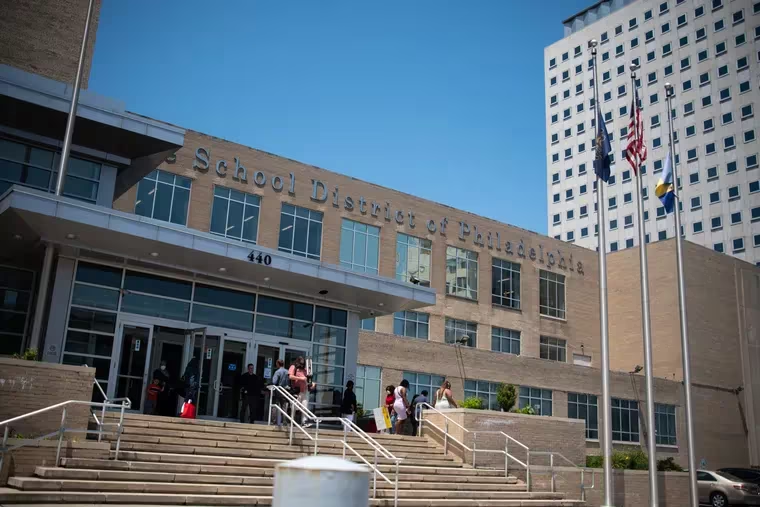The U.S. Department of Education has concluded a civil rights investigation into the Philadelphia School District, highlighting its failure to protect Jewish students from harassment. Despite receiving multiple reports of antisemitic behavior, the district allegedly neglected to address the complaints adequately, leaving students exposed to discriminatory acts and hostile environments. This investigation has resulted in a formal agreement requiring the district to implement corrective measures to ensure the safety and equity of all students.
Findings of the Civil Rights Investigation
The investigation, conducted by the Education Department’s Office for Civil Rights (OCR), uncovered alarming instances of antisemitic behavior within Philadelphia schools. These included:
- Students performing Nazi salutes.
- Swastikas drawn on school property.
- Uttered slurs and threats against Jewish students.
In some cases, school administrators failed to document these incidents or evaluate whether a hostile environment existed in their schools.
Additionally, the investigation noted antisemitic social media activity by a school board member, an assistant superintendent, and four teachers, further exacerbating concerns about the district’s culture.
The OCR concluded that the district did not take adequate steps to eliminate these behaviors, prevent recurrence, or create a safe learning environment for Jewish students.
The Impact of Antisemitism on Students
Antisemitism in educational institutions can have devastating effects on students, including:
- Emotional Distress: Constant exposure to discriminatory acts can lead to feelings of fear, anxiety, and isolation.
- Academic Performance: A hostile environment can disrupt a student’s ability to focus on studies, leading to lower academic achievement.
- Social Alienation: Jewish students may feel excluded from their peers and community due to discrimination.
These consequences underscore the urgency of addressing antisemitism in schools to ensure every student’s right to a safe and inclusive education.
Steps Taken by the Philadelphia School District
In response to the investigation, the Philadelphia School District has agreed to a comprehensive resolution plan to combat antisemitism and foster inclusivity. Key steps include:
- Annual Training for Staff: Administrators, faculty, and staff will receive training on identifying and addressing harassment and discrimination.
- Student Programming: Age-appropriate anti-harassment and anti-bias programs will be implemented for students.
- Improved Documentation: The district will establish better systems to record and respond to complaints of harassment.
- Anti-Harassment Statement: A formal statement will be released emphasizing the district’s commitment to creating a safe environment for all students.
These measures aim to rebuild trust within the community and ensure that Jewish students, along with all others, can learn in a discrimination-free environment.
Title VI of the Civil Rights Act
This investigation falls under Title VI of the Civil Rights Act of 1964, which prohibits discrimination based on race, color, or national origin in programs receiving federal funding. Title VI extends to instances of harassment and discriminatory behavior rooted in shared ancestry or ethnicity.
The Anti-Defamation League (ADL), a prominent Jewish advocacy group, was instrumental in bringing attention to the issue by filing complaints against the Philadelphia School District. Their advocacy highlights the critical role of civil rights organizations in holding institutions accountable for upholding the law.
Statements from Key Figures
Catherine E. Lhamon, the assistant secretary for civil rights, emphasized the importance of addressing this issue:
“The Philadelphia School District has committed to taking essential steps to redress any hostile environment in its schools so that Jewish students, like all students, can learn in an environment free from discriminatory harassment.”
The ADL welcomed the agreement and expressed hope that the measures will create lasting change in the district’s approach to harassment and discrimination.
Moving Forward: A Path to Inclusion
While the Philadelphia School District’s shortcomings have been brought to light, the resolution agreement presents an opportunity for meaningful change. To ensure lasting improvement:
- Community Involvement: Parents, students, and community leaders must remain engaged in monitoring the district’s progress.
- Ongoing Education: Schools should regularly update anti-harassment initiatives to address evolving challenges and biases.
- Transparency: The district must maintain open communication about its efforts to combat harassment and foster inclusivity.
This case serves as a reminder of the importance of vigilance in addressing all forms of discrimination and creating safe spaces for students of every background.
Conclusion
The U.S. Department of Education’s investigation into the Philadelphia School District sheds light on the challenges of addressing antisemitism in schools. While the findings reveal serious lapses in the district’s response to harassment, the steps outlined in the resolution agreement offer hope for a better future. By committing to education, accountability, and inclusivity, the district can ensure that all students feel valued, respected, and protected.
For further updates on this case and related initiatives, stay connected with civil rights advocacy groups like the Anti-Defamation League (ADL).











